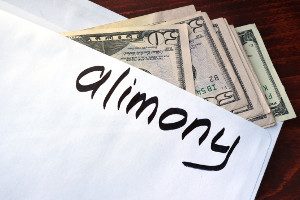Confusing Divorce Debts and Bankruptcy Law
 In a Chapter 7 “straight bankruptcy” case you CANNOT discharge—legally write off—ANY obligations arising from your divorce decree. This includes support-related and non-support divorce debts. But under Chapter 13 “adjustment of debts” you CAN discharge NON-SUPPORT divorce debts.
In a Chapter 7 “straight bankruptcy” case you CANNOT discharge—legally write off—ANY obligations arising from your divorce decree. This includes support-related and non-support divorce debts. But under Chapter 13 “adjustment of debts” you CAN discharge NON-SUPPORT divorce debts.
This is a confusing area of bankruptcy law because there have been many significant changes over the years. So some things that you may be hearing may have been true once, but have changed.
The Current Law about Support and “Non-Support” Divorce Debts
To be clear:
- Under Chapter 7 you can’t discharge any divorce debts.
- The Bankruptcy Code says you may not discharge any debt “to a spouse, former spouse, or child of the debtor” arising out of a divorce, separation, or marital property settlement. (See Sections 523(a)(5), 523(a)(15), and 101(14A) of the Code.)
- Under Chapter 13 you cannot discharge any child or spousal support debts, but you can discharge discharge debts that are not support debts.
- The Code says you may not discharge any debt “to a spouse, former spouse, or child of the debtor” “in the nature of alimony, maintenance, or support . . . of such spouse, former spouse, or child of the debtor or such child’s parent.” But you can discharge debts arising out of a divorce, separation, or marital property settlement other than those “in the nature of alimony, maintenance, or support.” (See how Chapter 13’s Section 1328(a)(2) does not allow for the discharge of a Section 523(a)(5) debt—for “alimony, maintenance, or support”—but allows for the discharge of Section 523(a)(15) debt—the non-support divorce debts.)
What Are “Non-Support” Divorce Debts?
The “non-support” obligations which can be discharged under Chapter 13 are those dealing with “property settlement.” These tend to be one of two kinds:
- money that you owe to your ex-spouse to make up for receiving more of the assets—for example if you received the more valuable vehicle or the family home, or
- your obligation to pay certain marital debts to creditors so that your ex-spouse does not have to pay them.
What Are “Support” vs. “Non-Support” Debts Not Always Clear
Support debts are defined as debts “in the nature of alimony, maintenance, or support . . . without regard to whether such debt is expressly so designated.” Section 101(14A) of the Bankruptcy Code. In other words, your divorce decree may not label some obligation as “support” but the bankruptcy court can still determine that it is “in the nature of support.”
For example if you were ordered in the decree to pay half of your ex-spouse monthly rent and health insurance premiums for five years, and there was no mention of any spousal support payments when normally they would have been, the rent/health insurance obligation may well be considered by the bankruptcy court to be “in the nature of support.”
Conclusion
If you have financial obligations from your divorce or separation decree OTHER than to pay child or spousal support, those obligations may be dischargeable under Chapter 13. So if you have a substantial amount of such non-support debt, you should look into filing under Chapter 13 instead of Chapter 7.
And if you are in the Dallas-Fort Worth Metroplex, let me help you through this thorny intersection of divorce and bankruptcy law. I’m Carrie Weir, a highly experienced Texas bankruptcy lawyer serving the areas around Rockwall, Heath, Greenville, Lavon, Wylie, Mesquite, Royse City, Sachse, and Rowlett. Please contact me for a free and confidential consultation. Please either just call me at 972-772-3083 or use the contact form here.
Thanks for checking out my website and this blog post.








Speak Your Mind